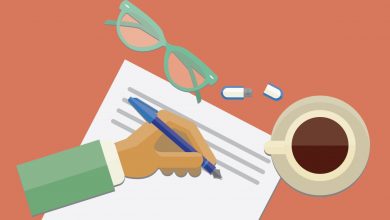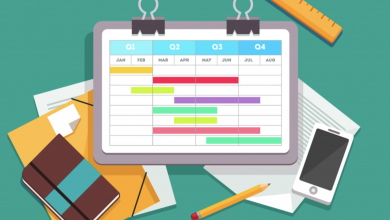What are Morning Pages? A Beginner’s Guide

Morning Pages are an exercise that inspires clarity, focus, and direction. Here’s everything you need to know about them, including instructions, tips, and tricks.
What Are Morning Pages?
Created by Julia Cameron, Morning Pages are an exercise that aims to inspire clarity, focus, and direction. It involves writing three pages of what comes to mind first thing in the morning. It doesn’t need to make sense. It doesn’t need to be a work of art. In fact, it won’t. This is all about expression — scribble exactly what comes to mind, as it comes to mind.
By doing this, we’re expressing all the nasty voices in our head that would have followed us around that day. Whether you’re struggling to be more creative or are feeling overwhelmed with another aspect of life, it’s no secret that talking takes a weight off your shoulder, and Morning Pages function much the same by allowing you to express yourself to yourself.
There’s no right or wrong when it comes to Morning Pages. They’re intended to be personal. Don’t think of them as a piece of content you’re writing for someone else to consume. They are exclusively for you and you don’t even need to revisit them if you don’t want to. The intention is to get what’s on your mind that second down on paper so you can free your mind.
But for Morning Pages to be truly effective you need to be complete and honest with yourself. There’s no point not writing something down because you’re scared of being judged. Being totally honest with yourself will allow you to gain a sense of perspective and figure out how best to remedy the situation. Remember: You’re looking for clarity, focus, and direction.
How to Write Morning Pages
Morning Pages are as unique as the people who write them. Alas, there’s no ‘correct’ template to follow. It’s all about writing down exactly what comes to mind when you sit down to do them. There’s no correct formatting. The only requirement is that it’s three pages of longhand, stream-of-consciousness writing, completed first thing in the morning.
Having said that, you don’t want this to feel like a chore. You need to want it to work and make it a somewhat enjoyable experience. We recommend writing them over a cup of your favorite tea or coffee in a location you feel most comfortable, be it in bed or at the kitchen counter. Heck, some people even like to scribble them in the bath (we’re a fan of this too).
Putting some soothing music on in the background can also make it feel less intimidating. There are hundreds of fantastic relaxation playlists on Spotify to choose from. Ultimately, you want to make this into a spa-like experience for your brain. It’s your chance to unload all of the burdens you’re carrying around upstairs so you can start the day with a clear mind.
Finally, consider investing in a quality notepad and pen (We’ll talk through some of our favorites a little later). Ever heard the adage ‘a man is only as good as his tools?’. Well, that applies here. If you’re writing on cheap paper with an uncomfortable pen, Morning Pages will soon feel like a chore. You need to do everything you can to stop that from happening.
Can You Write Morning Pages at Night?
The aim of Morning Pages is to clear your mind for the day ahead, so they need to be done in the morning. Don’t take our word for it, though: This instruction comes from Julia Cameron, the creator of Morning Pages. We recommend sitting down to scribble them first thing while all your thoughts are fresh in your mind, so you can finish them up then go about your day.
Can You Do Morning Pages on a Computer?
Writing Morning Pages on a computer is not advised. That’s because they’re meant to encourage you to think and connect with what you’re putting on the page. Writing by hand lets us connect more intimately with our thoughts and clearing the air with ourselves before the day ahead. Typing may be faster, but it provides less depth; it isn’t as effective.
Are Morning Pages Handwritten?
Yes, Morning Pages are handwritten. Per Julia Cameron: “Typing Morning Pages may give us more speed — but will give us less depth. Writing by hand connects us more intimately to our thoughts, and paradoxically is more efficient in terms of getting in touch with ourselves and opening the path to our most authentic selves and the day at hand.”
How Many Words Should Morning Pages Be?
There’s no real word count for Morning Pages. The only requirement is three, single-sided pages. For most, this is around 650–750 words, depending on the size of the writing. But don’t fixate on this — use that energy to really focus on what you’re thinking while you’re putting pen to paper, while keeping the three pages stipulation at the back of your mind.
How Long Do Morning Pages Take?
The amount of time Morning Pages take depends on how fast you write. As a general rule though you should be setting aside at least half an hour for them, with most people taking 45 from start to finish. This may seem like a considerable investment, but they make more time than they take — freeing your mind up to be more productive over the course of the day.
Are Morning Pages Front and Back?
Morning Pages should be three single sides of A4-sized paper, with Julia Cameron warning that writing more than three pages risks venturing too deep into self-absorption. If you’re writing on both sides of the page (front and back), which will likely be the case if you’re using a dedicated notebook for Morning Pages, you’re looking at one and a half pages.
Is There a Morning Pages App?
Yes, there is an (unofficial) Morning Pages app … but you shouldn’t use it. Morning Pages are supposed to be handwritten. You don’t have the same emotional attachment to what you’re writing when you’re tapping away on a screen. Writing by hand, according to Julia Cameron, n us with more depth — depth we need to really understand ourselves.
Morning Pages Benefits
Morning Pages can have many different benefits, the main being they enable you to start your day with a clear head by dumping all of the thoughts that have amassed since the day before that could weigh you down and affect your productivity and your life. But what else can they do? Well, they can help you silence your inner critic and be more rational for starters.
Process Emotion
One of the lesser-known benefits of Morning Pages is that they can help you process emotion. By writing down all your thoughts, you can be honest with yourself and figure out how you feel about a particular situation. It’s also a useful tool for dealing with your emotion as you can vent, letting out all your frustrations, so you can think about the situation more rationally.
Unleash Creativity
Being creative takes discipline says MasterClass. Aside from clearing your mind, Morning Pages establish a routine that will help you find a way to better organize your day. Once you get into the habit of writing Morning Pages, finding the time for creative projects will be easier. Building routines is a valuable life skill that’ll benefit you for many years to come.
Morning Pages Guidelines
- Write them first thing in the morning. These aren’t Evening Pages.
- Be honest — write exactly what comes to mind. Don’t sugarcoat it.
- Hit the target. It’s three pages for a reason — no more, no less.
Morning Pages Prompts
As we said earlier, if you want Morning Pages to be effective you need to be honest with yourself so if you’re struggling to think of something to write, scribble down exactly that — “I can’t think of anything” and repeat this until you do. Sooner or later something will come to mind, and if it doesn’t, then it will the next day. This is a marathon, not a sprint.
Multiple websites will provide you with so-called ‘Morning Pages writing prompts’ that aim to give you a place to start. Some recommend noting things you’re grateful for; others encourage you to document your fears. These defeat the purpose of Morning Pages. They’re influencing your thoughts and feelings for what’s intended to be a conscious exercise.
If you really can’t find your groove, you can use one of these prompts to create a mind-dump of some other kind. The beauty of self-therapy is that it is open to interpretation. While you may not be writing Morning Pages in the traditional sense, documenting other thoughts may help and that’s the most important thing. Experiment a little and do what works for you.
Here are some possible (unconventional) Morning Pages prompts:
- Frustrations you’re feeling
- Fears you’re experiencing
- Ideas taking up space in your mind
- What you’re looking forward to
Morning Pages Examples
Morning Pages are intended, so it’s hard to find Morning Pages examples. To overcome this, we sat down and came up with a few different samples. We’ve kept these limited to one paragraph, focusing on starters so we don’t influence your writing style. Why? Because you need to be honest to yourself and spill what’s on your mind, not what’s on someone else’s.
Example 1
I’m doubting myself. Should I take this new job or should I not? If I take it, I’ll make a lot more money but I’ll have less time for my family. I’m in debt though. Should I take it to clear my debt then scale back? It seems like the most reasonable thing to do. I think I’ll do that. There’s more to consider though. Who will take care of the children while I’m at work?
Example 2
Life is so stressful. I’m having trouble sleeping but I can’t quite figure out why. Maybe it’s multiple things. I think that’s probably it. I’m fighting a lot with my significant other for no reason. I think it’s because I’m so stressed that I’m constantly on edge. I’m working very long hours. That could be contributing to my stress levels. I should cut back…
Example 3
I really need a vacation. It’s all I can think about. I don’t have the money to book one now though. I’m going to create a savings account and deposit money into it monthly. I think $100 a month will be enough. This way I should have enough by the end of the month. I don’t want to go abroad. Just somewhere in the country. A small break to reset.
Are Morning Pages Worth It?
Whether Morning Pages are worth it depends on how you approach them. If you convince yourself they’re a waste of time, that’ll almost certainly be the case. You need to be open to the benefits. Better yet, don’t even think about what they can do to you — remain neutral. Your only aim should be to write down exactly what’s on your mind.
If determining whether they’re worth it is consuming you, ask yourself the following: “What do I have to lose?” The answer is a small amount of time at the start of your day — and that’s if they don’t work for you. If they do, you have everything to gain. So invest a small chunk of time in your mental health and give them a try, starting tomorrow morning.











